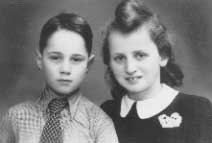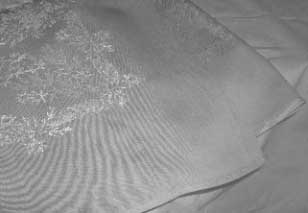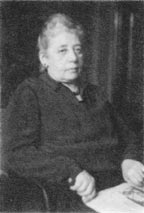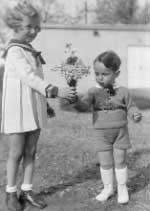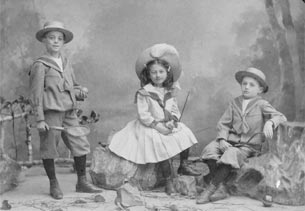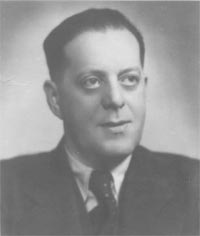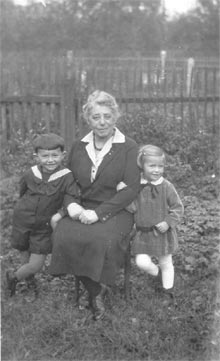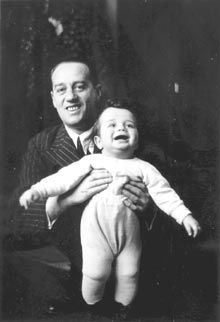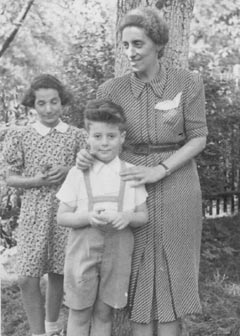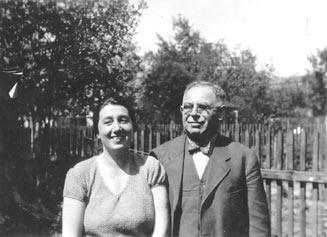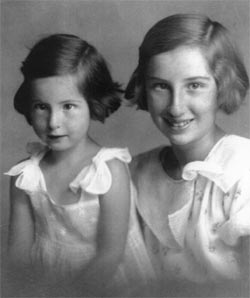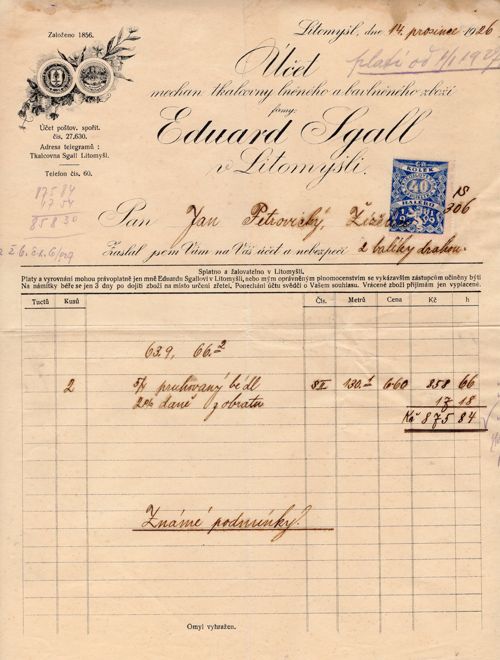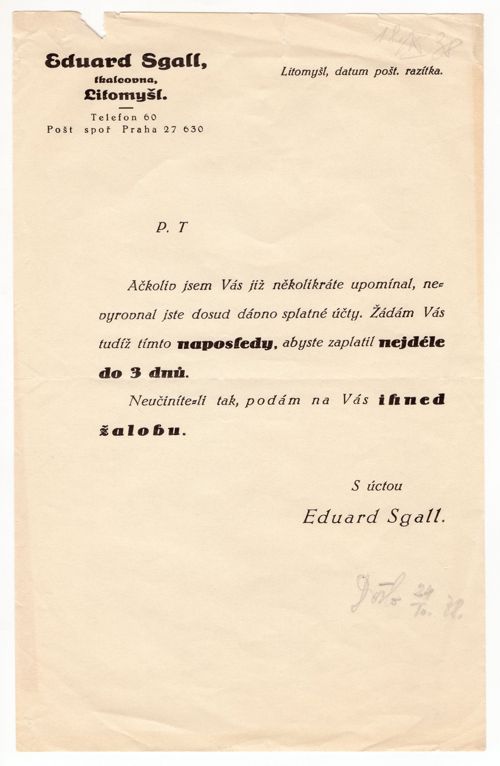The Story of an Elegant Tennis Player
Otto Sgall (born on 30th March, 1894) was the second son of Eduard Sgall and Bedřiška Sgallová. He had a brother Oskar, and two sisters - Růžena and Irena. The Sgalls lived in Dolní (today´s Havlíčkova) Street in their own one-story house with a small courtyard and a long garden. Eduard was a textile dealer. Bedřiška came from a family of five children. Her two brothers moved from Jaroměř to Vienna when they were young. One of them, Ernst Pick, became a university professor, and the other, Otto Pick, ran a successful textile production business. (Thanks to his considerable wealth he helped most of his brothers and sisters to move to Canada at the end of 1930s.)
Otto Sgall from Litomyšl lived with his mother after his father´s death. He took over the store and started to build up what we would call a wholesalers today. He purchased cotton and wool, then he sent the material away to have it woven and dyed; he had cutters in Litomyšl and he distributed goods.
He was successful in his business and at the beginning of the 1930s, he was reckoned to be "one of the rich" in the town. Together with three of his friends, he had a tennis court in the "Na Kodymce" garden (at today´s 428, Kapitána Jaroše Street). People in Litomyšl called it "Jewish tennis" (there was another tennis court in the town, next to the Sokol Hall, but this one did not have any nickname), maybe because it was a private court and only a small group of people went to play tennis there, mostly Jews. We know for sure that the Poláks played tennis there. Mr. Drbal told us that there was a sarcastic saying in the town - "The Jews are swatting wind there."
Otto Sgall was quite tall, thin and had lovely dark hair. Girls liked him. In 1932 or 1933, he married to Marie Fingerová (aka Mici or Micie), who was 19 years younger than him. They must have known each other as they lived in the same town, but their relationship really began at a student ball. Micie borrowed an amazing wine red dress for the ball from her friend in Plzeň, which really suited her. She was a beautiful, dark-haired, wide-eyed girl. No wonder Otto fell in love with her. The wedding soon followed.
Otto bought the garden with the court from his friends and his father-in-law, Rudolf Finger, had a big house for both families built there by the renowned local builder Vlach, as a dowry for his two daughters, Micie and Markéta. Markéta moved to Litomyšl with her husband, Viktor Frey, and daughter, Eva, from Plzeň. The Sgalls, who were richer, occupied the ground floor flat, which they furnished luxuriously (e.g. they had furniture which matched the veneer on the door and the panels used as lining on the door frames in every room. The Freys lived on the first floor.
Mr. and Mrs. Sgall were known in the town as a beautiful couple. Micie liked to dress up and she would buy expensive and elegant, a la mode dresses. She seldom wore trousers and people remember her wearing mainly suits and dresses. In winter, she wore a fur coat. She was always neat and with perfect hair. Otto encouraged her to look like this. He used to say that a wife should be a reflection of her husband. He was very jealous and he didn´t let his wife go anywhere without him. It annoyed her quite a lot because she was very sociable, unlike him. When the Freys had visitors, she was not even allowed to go upstairs to join her sister´s guests.
Micie didn´t have a good relationship with her mother-in-law. Mrs. Markéta Freyová remembers that the old lady criticised Micie becasue of her small dowry. From other sources though, we do know that the young Sgalls often came to visit Bedřiška, who had been a widow since 1930 and that they were made very welcome.
The Sgalls´son Milan was born on 5th May, 1934.
When the persecution of the Jews started, Otto organized a secret clearance sale. Many people, like Marie Kratochvílová, bought their wedding clothes from him for very little money. The Sgalls had to move out of their house and go to live in Bedřiška´s house in Dolní Street.
They were moved on 2nd December, 1942 and arrived at Terezín on Cf transport from Pardubice on 5th December, 1942. They were transferred to Auschwitz on Dm transport on 6th September, 1942 - their numbers were Milan (4724), Otto (4725), and Micie (4726). The three died in a gas chamber on 8th March, 1944.
Bedřiška Sgallová left for Auschwitz on 15th December, 1943 on Dr transport under the number 1856. Despite her age (she was 75), she kept hoping till the last moment that she would survive. Mrs. Ela Fischerová, who worked as a nurse in Auschwitz, said after the war that Bedřiška did not "go to the gas chamber", but starved to death. Nobody was allowed to give her food or drink.
A sad end in the gas chamber also awaited Otto´s sister Irena, whose married name was Pollaková. She was a widow becasue her husband, a paediatrician, had died. She died together with her children, Lenka (14) and Josef (11), whom she refused to abandon when the so-called family camp at Auschwitz-Birkenau was closed in July, 1944.
The second of Otto´s sisters, Růžena, whose married name was Holznerová, lived with her husband and daughters Věra and Lydie in Hronov. All the members of her family also ended up in Auschwitz on 16th December, 1943, where they had arrived via Terezín. Růžena had an attack of very heavy bleeding in Auschwitz that forced her to go to the hospital block, where Dr. Mengele chose her for one of his "experiments". Once, she told her daughter not to go behind the barracks, as the dead body of her granny was lying there on a heap of corpses. By some miracle, Růžena survived Mengele´s "care", but all trace of her ends when she was transferred to another camp, probably in Stutthof.
Emil Holzner died in Auschwitz in July, 1944, probably in the gas chamber. Věra and Lydie were supposed to go through a much-feared selection process on 2nd July, 1944. Mengele considered Věra to be capable of working, but Lydie, not yet 15 years old, was singled out. Brave Věra took her sister back to the block and so saved her. Both the sisters then worked in the Gross-Rosen camp. They also survived a death march, which lasted six endless weeks and they lived to see liberation in Bergen-Belsen.
Věra, married name Jílková, lives in Prague today. Lydie died when she was 66.
Otto´s brother Oskar lived in Ústí nad Orlicí with his wife Růžena, who was not Jewish, and so she survived the war, as well as their children, Petr and Irena. Petr spent the last six months of the war in a work camp in Postoloprty. Oskar was arrested by the Gestapo in January, 1943 and taken to the Little Fortress in Terezín. He died in March, 1943 in Auschwitz.
Dagmar Burdová
